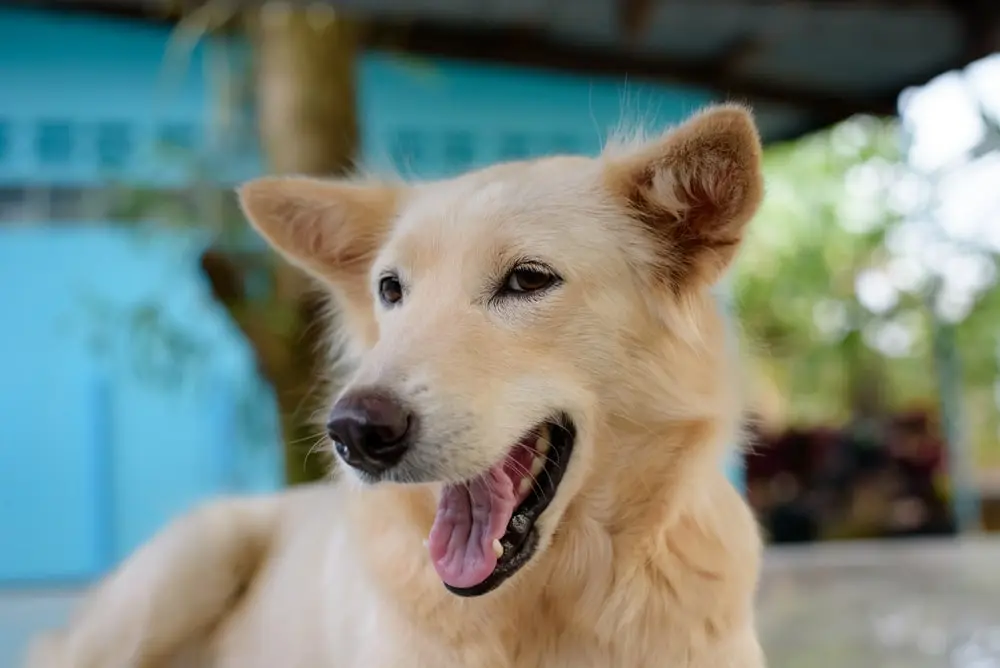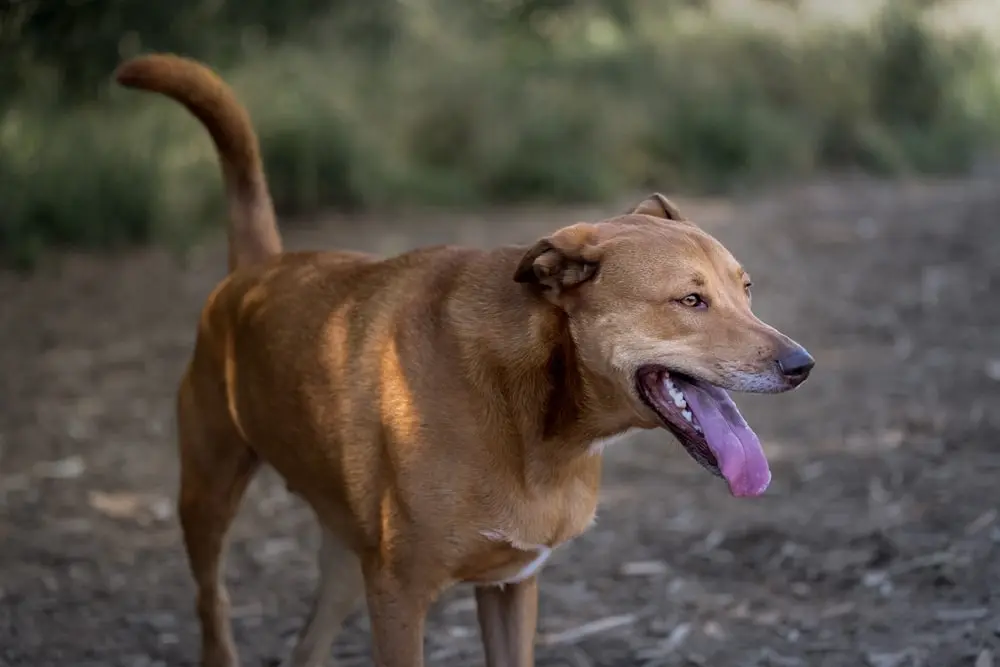PET HEALTH
Why Is My Dog Coughing?
Dogs cough for a wide range of reasons — it could be to clear their throat of dust or debris, or it could be a sign that they need a vet visit.
Coughing on occasion is often not a cause for concern, but frequent coughing can be. Here are some common reasons why dogs may cough, how to tell coughs apart, and what treatment options can help them get better.
Pet Insurance May Help Cover Treatment Costs for Dog Coughing
Infections That May Cause Dog Coughing
Bacterial infections
Some bacterial infections, like kennel cough, infect the upper respiratory tract, which leads to a deep, dry, honking cough you may be hearing from your dog.1
Bordetella — and its family of bacteria that cause kennel cough — thrive in crowded places, like dog kennels, parks, and day cares. Luckily, there’s a bordetella vaccine available to help prevent kennel cough.
Coughing can also be a symptom of tonsillitis and other infections that affect the throat.1
Viruses
Another culprit of coughing in dogs is canine influenza.1 Cases of the flu can range from mild to severe, depending on your dog’s age, immune system, and any pre-existing conditions. You can get your pup a dog flu vaccine to help prevent infection.
Parasites
From a slight cough to a persistent one, heartworms can cause coughing in dogs based on which stage of the infection they’re in.1 Professionals recommend that pet parents stay up to date on their dog’s heartworm, flea, and tick preventive medications to help avoid harmful parasitic infections.
Lungworms can also infect your dog and cause coughing — although they’re less common than heartworms.2
Chronic Conditions That May Cause Dog Coughing
Lung conditions
If your dog’s cough sounds wet or moist, it could be a sign of pneumonia. Pneumonia in dogs can be caused by particles entering the lungs — like bacteria, fungi, or irritants.1
Your dog’s dry cough, with hacking that gets worse with exercise, could be bronchitis.2 Bronchitis is a sudden or long-term inflammation of the throat and bronchial airways, typically due to existing respiratory diseases. Chronic bronchitis, however, comes with a persistent cough for more than 2 months without an identifiable cause.3
Additionally, coughing due to difficulty breathing can be caused by high blood pressure in the lungs’ arteries — aka pulmonary hypertension.2
Heart conditions
Heart problems — like mitral valve disease or dilated cardiomyopathy — may cause coughing in dogs.2 Some heart diseases can cause fluid to fill the lungs, leading to congestive heart failure. For dogs with heart failure, the cough may sound soft and persistent when they’re lying on their side or sleeping due to fluid building up in their lungs.1
Cancers
Cancers that affect your dog’s respiratory system, heart, surrounding tissues, or throat may cause coughing. This can also include benign (non-cancerous) growths and tumors.2
Allergies
Your dog’s dry cough could be a symptom of environmental or seasonal allergies causing inflammation in their lungs and airways. Inhaled irritants, like smoke and chemicals, can also cause coughing.1,2
What Else Causes a Dog To Cough?
Blockages and choking
If your dog is coughing and gagging, it may be caused by irritation, partial blockage, or choking in the throat due to a foreign object.1,2 It could be as small as a piece of grass or something larger, like a chew toy. Trying to remove stuck objects yourself can be dangerous, so don’t hesitate to get a vet’s help.
Collapsed trachea
A goose-like cough after your dog inhales can be a sign of tracheal collapse — which is the gradual softening and closing of the esophagus.1,2 This condition is more common in small, toy-breed dogs and may get worse if they tend to pull on their leash when it’s attached to their collar.1
Esophagitis
An inflamed esoph9agus can result in chronic dog coughing.4 Esophagitis can be caused by acid reflux, foreign objects, and certain medications — like anesthesia and anti-vomiting meds.2,4
Types of Dog Coughs
The sound and texture of your dog or puppy’s cough can tell you a lot about what’s causing it. One way to help you figure out why your dog is coughing is to ask yourself some questions:1
- Is the cough deep, dry, or like hacking?
- Does it sound like high-pitched gagging?
- Is the cough wet, phlegmy, and moist?
- Is it a deep, honking cough?
Pay attention to the coughing to see if any patterns emerge — like the time of day or if they’re coughing after they sleep or exercise. The answers to these questions will help your vet diagnose the cause and come up with a treatment plan.
How Do Vets Diagnose a Dog Cough?
Armed with the information you provide on the type of cough and any patterns you’ve noticed, your vet will perform a physical exam and look into your dog’s medical records. To get an accurate diagnosis, your vet will likely perform diagnostic tests based on what they believe the cause is.2
Some of these tests can include:2
- X-rays or ultrasounds
- Blood work
- Blood pressure and other vitals
- Endoscopy (to look at the esophagus and stomach)
- Bronchoscopy (to look at the upper respiratory tract)
- Fecal and urine tests
- Testing for infections
Your vet may find the cause after just one or two tests, or it could take a handful to get there. Ask questions along the way if you’re curious about anything, and focus on keeping your dog comfortable.
Dog Coughing Treatment
Depending on what’s causing your dog’s cough, they may be treated with a combination of the following:2,3,4
- Antibiotics, steroids, and other medications to treat specific conditions
- Cough suppressants
- Respiratory support (such as nebulizers or oxygen therapy)
- Intravenous (IV) fluid support
- Eliminating or limiting exposure to irritants
- Surgery
- Endoscopy
Treatment costs can vary based on the diagnosis and how your pet responds to treatment. A pet insurance policy could help you cover vet expenses so they don’t break the bank.
When It’s Time To Call the Vet, MetLife Pet Insurance Can Help
Dog coughing can be caused by a variety of things. Luckily, most of them are treatable. Between diagnostics, hospital care, surgeries, and medications, you can confidently take care of your vet bills knowing these kinds of services can be covered by MetLife Pet policies.
Enjoy reimbursements of up to 90% on covered expenses,5 and keep your dog healthy by adding our optional Preventive Care plan to your policy to help get vaccines and other routine care covered.
Help protect your finances and get your pup the best care with an award-winning6 dog insurance policy. Get your free, personalized quote today.
Dr. Hunter Finn has been paid by MetLife to discuss the importance of choosing pet insurance. He is an integrative veterinary expert first, and social media star second. America’s favorite veterinarian owns Pet Method in McKinney, Texas, where he cares for pets while prioritizing their emotional well-being. When he’s not at his clinic, he’s starring in viral videos on TikTok (2 million followers) and Instagram (500K followers) — where he’s been known to snuggle puppies and conquer the latest dance trends.




